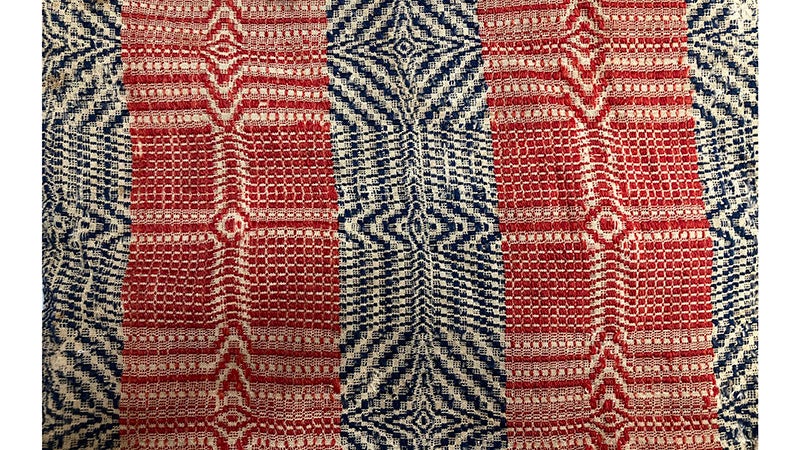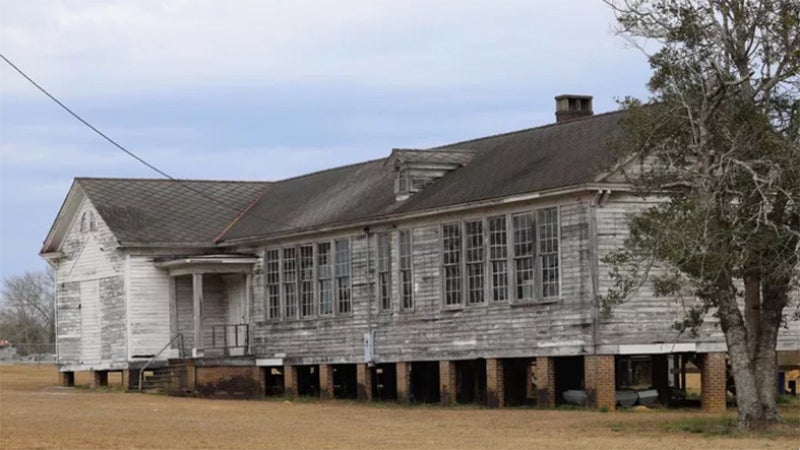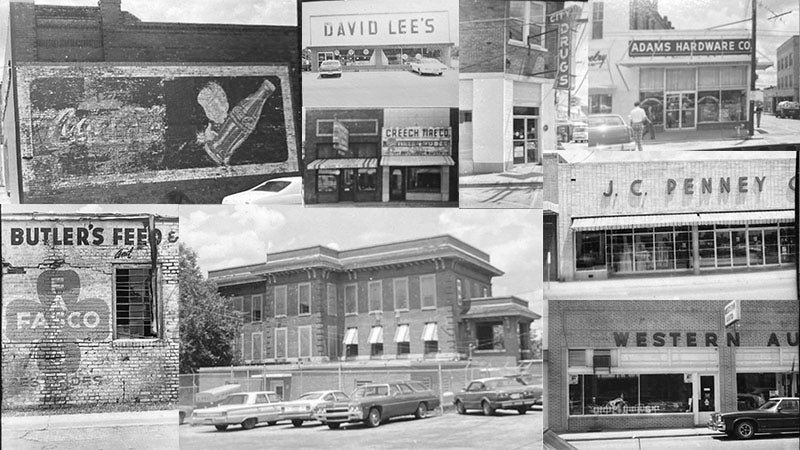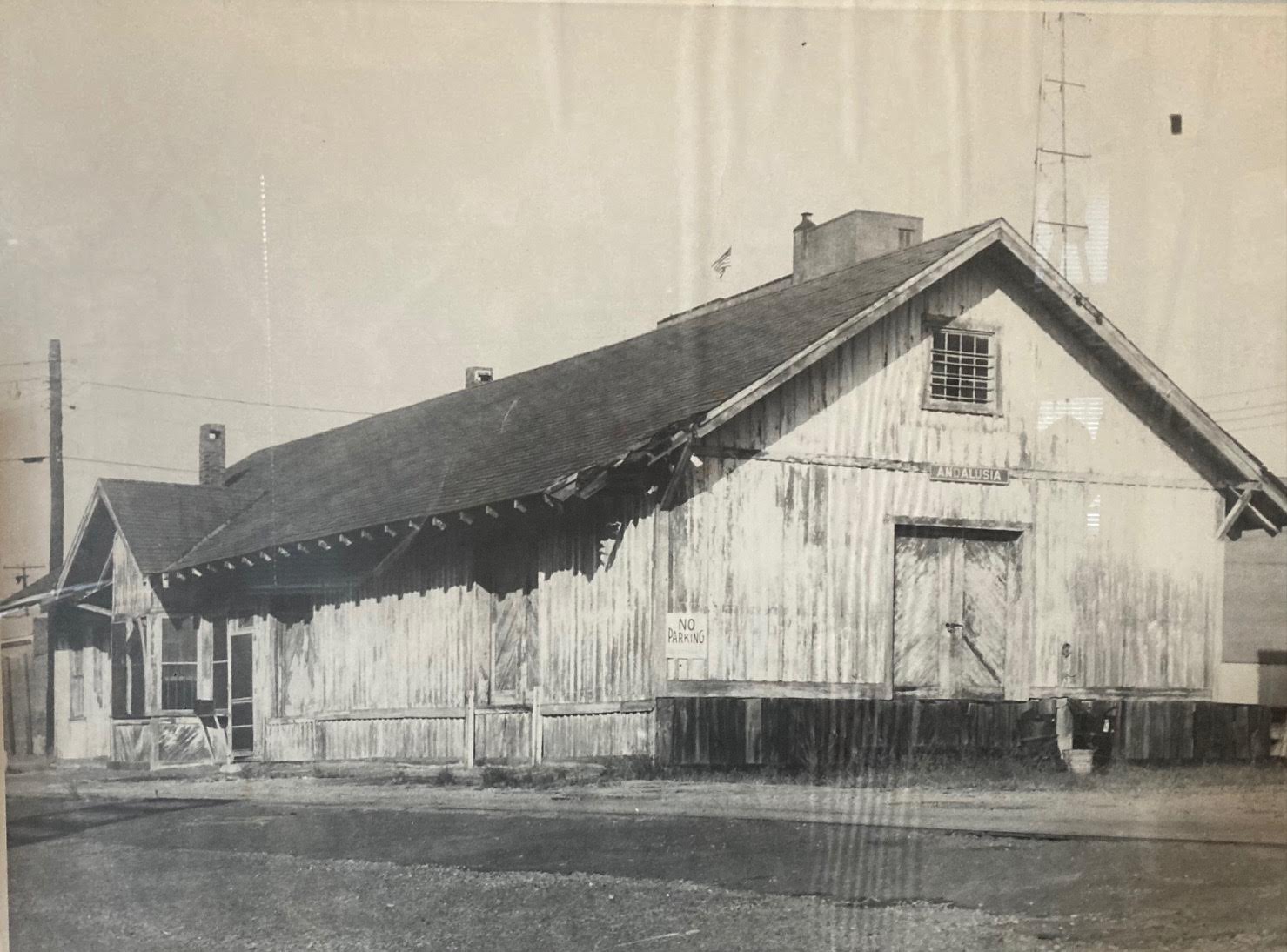Remember when: This was Our Town
Published 2:21 am Saturday, March 17, 2018
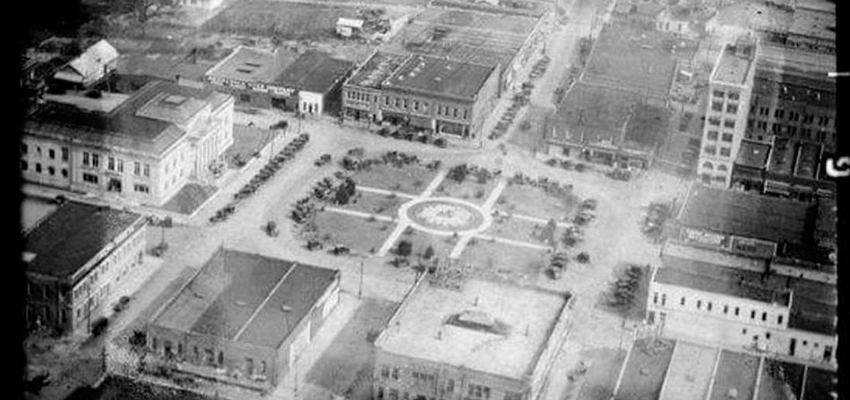
- The public square in Andalusia, circa 1920s. Courtesy Photo
“If You Were the Only Girl in the World” was a popular song during World War I around 1917. Those good old songs always were revived. This one came back sung by Bing Crosby in 1947. A little over 100 years ago in Andalusia – this old crumbling newspaper I have on my desk that has turned yellow with time – sheds a lot of light on life in town. Then today an aerial view of the Public Square and surroundings in Andalusia was posted on Facebook. I imagine the date was the early 1920s because the First National Bank building was there, the new courthouse built 1917 was in the photograph, and a few automobiles can be seen parked around the square. “This is Our Town” – the dimple of Dixie! A lot has changed in the last century, but life in this small Alabama town is really much the same as a reader can learn from perusing an old newspaper of the day!
“WANTED – Eggs, 30 cents a dozen; Hens, 17 ½ cents a lb.; Fryers, 20 cents a lb.; Broilers, 25 cents a lb.; Roosters, 35 cents each; Please let us have all you can. The boys in the army must be fed. J. W. Shreve and Co.”
“FOR RENT – 2-horse farm. Terms reasonable. Located near Falco. See me at once. J. W. Davis.”
“FOR SALE OR RENT – My new six-room bungalow in the Riley-Rankin Addition. Will sell cheap. Dr. Pennington.”
“PAVE EAST THREE NOTCH – We ought to start street paving at Andalusia. We ought to start it now. We should have all of the improvements that make for a great, a sanitary, and a progressive little city. The Star recommends to the Andalusia city council that the necessary ordinance be drafted and passed permitting and requiring the property owners on East Three Notch Street from Court Square to the intersection of Sanford Road to float baby bonds for the purpose of grading and paving the streets and sidewalks.”
“R. L. Kearley, Veterinary surgeon, Office: Riley’s Drug Store, Treats all domestic animals, Dehorns cattle, Telephone calls given prompt attention.”
Old timers may remember that Dr. Richard Kearley was a veterinarian in Andalusia who became Andalusia High School’s first football coach. It is believed that the mascot, the Bulldogs, was suggested and perhaps even chosen by him. So today he is credited with naming the Andalusia Bulldogs. His home was located on South Three Notch Street and his animal clinic was situated way in the deep back yard that borders West Watson Street. His wife Annie Kearley was a piano teacher who staged many piano recitals through the years that are written up in The Andalusia Star News all the way up to the late 1950s and early 1960s. The Kearley’s children were Anne Kearley (Tipler) and Richard Kearley of Dallas, Texas. Richard and his wife Clarice donated the antique pump organ housed at Three Notch Museum as well as the sanctuary grand piano and the herald trumpets at the First Baptist Church. A beautiful oil painting of the old FBC downtown by Laura Godwin that hangs beside the entrance door to the choir room was commissioned and donated by the Kearleys.
“The Andalusia Machine Gun Company of the Alabama National Guard is stationed at Birmingham.”
“ANDALUSIA CITIZENS HOLD BIG PREPAREDNESS MEETING – The citizens of Andalusia met Wednesday evening in the courthouse for the purpose of preparing to do their part in an organized way to help meet the food shortage which the war is going to entail. The Andalusia City Band played patriotic airs for thirty minutes prior to the opening of the meeting. At 4:30, the hour set for the meeting, the big court room was filled with men, women, and children.”
“Dr. L. E. Broughton was elected chairman. Addresses were made by Superintendent L. E. Brown, Rev. A. J. Preston, Hon. T. E. Henderson, and Oscar M. Duggar in which the importance of having a garden for each and every family was emphasized. The privations of war are not yet being felt here, but they are going to be. ‘It is a crime not to have a garden, not to grow corn, peas, potatoes, turnips, and all vegetables suitable for food,’ speakers voiced. It was pointed out that food is shipped to the South annually from other sections of the country. The imperative demand which the war is now making upon our country to supply the shortage of food products for the allies is going to make it difficult for us to secure food from other states regardless of the price that we may be willing to pay.”

J.S. Burnett and C.S. O’Neal were hailed for their work with the Civic Improvement Club to improve the cemetery.
Courtesy Photo
“This is the planting season and people must wake up now. Another committee was appointed to request all merchants to agree to close their stores at 5:30 each afternoon so that merchants and clerks may have some time to devote to growing a garden. In this meeting, a very pronounced sentiment as manifested against chickens and pigeons being allowed to roam at will. It will be impossible to have gardens unless owners are required to confine their birds. The city council will no doubt pass an ordinance to that effect.”
“WORK AT CEMETERY – A transformation of the appearance of the cemetery has been wrought by the Civic Improvement Club during the past three days. Graves have been filled, driveways and walkways improved, and the entire place cleaned.”
“The work accomplished by Mr. J. S. (John) Burnett and C. S. O’Neal deserves special mention. Through the kindness of Mayor Gillis and Superintendent W. W. Rye of the street force, the force worked at the cemetery worked untiringly. There are scores of graves at the cemetery in which people are buried who have no relatives or friends in Andalusia (to tend their graves). These graves are kept up by the Civic Improvement Club in addition to the upkeep of the place as a whole.”
“Credit for much of the work accomplished and improvements made at the Andalusia’s ‘city of the dead’ is due Mrs. Burnett who has labored for several years. The result is a marked improvement in the appearance of the grounds and driveways.”
Here we are more than 100 years later, in the year of our Lord 2018, and all of these people mentioned above are now resting in the “city of the dead” (Magnolia Cemetery). I see their names listed in the book compiled by Sidney and Polly Wilder Waits, “Magnolia Cemetery, An In Depth Index.” In the old newspapers that are in the archives at the Andalusia Public Library and The Andalusia Star News office, during this period of time around the early 1920s, a little before and a lot after, I often see Mrs. Burnett’s name in print listed as a citizen who did more than her share of work for her beloved adopted town of Andalusia, the city schools, and her church, the First Methodist. She was Mary “Mamie” Elizabeth Bellingrath Burnett of Coca-Cola fortune and fame. Mr. Burnett who managed the Coca-Cola Bottling Company in Andalusia died in 1928, Mrs. Burnett in 1940. Did you ever wonder where Burnett Street behind the O’Neal building and the Clark Theatre got its name? Now you know! The Coca-Cola Bottling and the Consumers Ice plants used to be on the block bordering Troy, Crescent, and Burnett Streets later razed for a parking lot.
I REMEMBER WHEN back some years ago, there was a call to civic minded persons to work in our oldest city cemetery on a Saturday morning in the springtime. It was when Jo Ann Boswell, Andalusia’s first city councilwoman at the time, along with some others spearheaded the drive to manicure Magnolia. That has been a while back. Yes, the City of Andalusia definitely does their part today to weed-eat and manicure the cemetery in an extraordinary way, but there is still a lot more TLC needed. Will you show up one Saturday morning with your yard tools in hand to tend a few graves? Bring your children and your grandchildren. Look for the dates and time soon to be publicized by the Covington Historical Society. “GONE BUT NOT FORGOTTEN” are the citizens of long ago who helped make Andalusia what it is today!
Sue Bass Wilson (AHS Class of ’65) is a local real estate broker and long-time member of the Covington Historical Society. She can be reached at suebwilson4@gmail.com.


